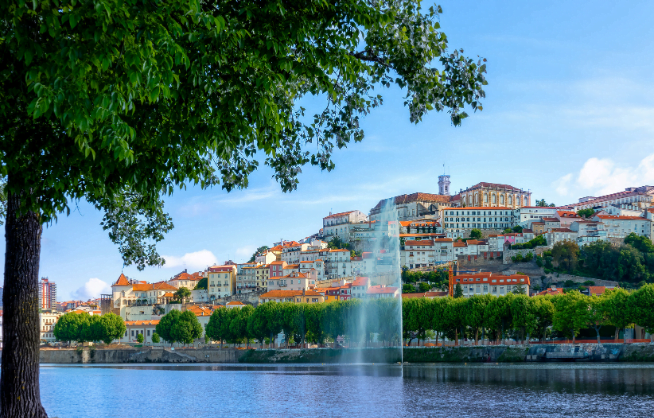Buy House in Coimbra

Want to buy a house in Coimbra? Have you visited our beautiful town and fell in love with it? We want to help you find the perfect house! Let us know exactly what you want and we will find it for you! The best part is that the service is completely free and you won't be obliged to buy or rent any of the properties we present you with!
Why Move to Coimbra?
Coimbra, a city steeped in history and brimming with cultural vibrancy, extends a warm invitation to those who yearn for a destination steeped in significance and potential. Its roots dig deep into the annals of time, dating back to the 4th century when it bore the name Aeminium, a heritage still inscribed in Latin text. Through the ages, Coimbra's story has unfolded, shaped by the tides of different civilizations and the residue of captivating tales left in their wake.
Once a fortress of the Moors, Coimbra marked a pivotal turning point in 878 when Alfonso III of Asturias and Leon reclaimed it. Galicians from the north settled into the city, giving birth to the name Coimbra as the see of Conimbriga shifted. In time, this city played a vital role in the reconquest of Portugal, standing as the nation's capital from 1139 until 1260, when Lisbon assumed the mantle.
Coimbra holds a distinguished position in Portuguese history, serving as the birthplace of six medieval monarchs and the celebrated poet Francisco de Sá de Miranda. The city is also home to Portugal's oldest university, founded in 1290 in Lisbon and later finding its permanent abode in Coimbra in 1537. The Universidade de Coimbra is an architectural gem, adorned with a resplendently carved door (1517-22) and a lavishly adorned Baroque library (1716-23). This esteemed institution houses an extensive collection, with over a million volumes and thousands of manuscripts, including the first edition of Luís de Camões's epic poem "Os Lusíadas" (1572).
Coimbra's historical tapestry is artfully displayed through its captivating landmarks. The city boasts the Romanesque old cathedral (1170), the São Salvador church (12th century), the new cathedral (initiated in 1598), and the Machado de Castro Museum, which resides in the meticulously restored old episcopal palace. The Santa Cruz church, originally constructed during Afonso I's reign and subsequently rebuilt in 1520, is a poignant testament to Coimbra's heritage. The Aqueduct of São Sebastião, skillfully reconstructed upon Roman foundations (1568-70), and the Monastery of Celas, founded in the 12th century by Beata Sancha, daughter of Sancho I, further enrich the city's architectural tapestry.
Beyond its historical and cultural wealth, Coimbra thrives as a contemporary city with diverse industries. The city is renowned for its pottery, textiles, beer, wine, paper, and leather production. A publishing house established in the 19th century has made valuable contributions to Coimbra's literary landscape. The city benefits from robust transportation networks, with electrified railways and highways connecting it to major Portuguese hubs such as Porto and Lisbon. Moreover, a well-developed highway and railway extend eastward, linking Coimbra to Guarda and Spain.
The region surrounding Coimbra sustains an agricultural and fishing economy, yielding crops like grain, olives, rice, and fruits. Dams harness the Mondego River and its tributary, the Alva, to provide a vital source of hydroelectric power. Coimbra's dynamic environment, bolstered by its historical gravitas and diversified industries, offers a promising setting for those seeking a fusion of cultural enrichment and economic prospects.
In Coimbra, the echoes of the past harmoniously intermingle with the cadence of contemporary life, crafting a distinctive blend that beckons residents and travelers alike. This city of knowledge, culture, and industry extends an open-armed invitation, eager to welcome those who seek a place steeped in historical eminence, academic excellence, and a spirited sense of community. Coimbra awaits with open arms, prepared to embrace those who aspire to partake in its ever-evolving narrative.

